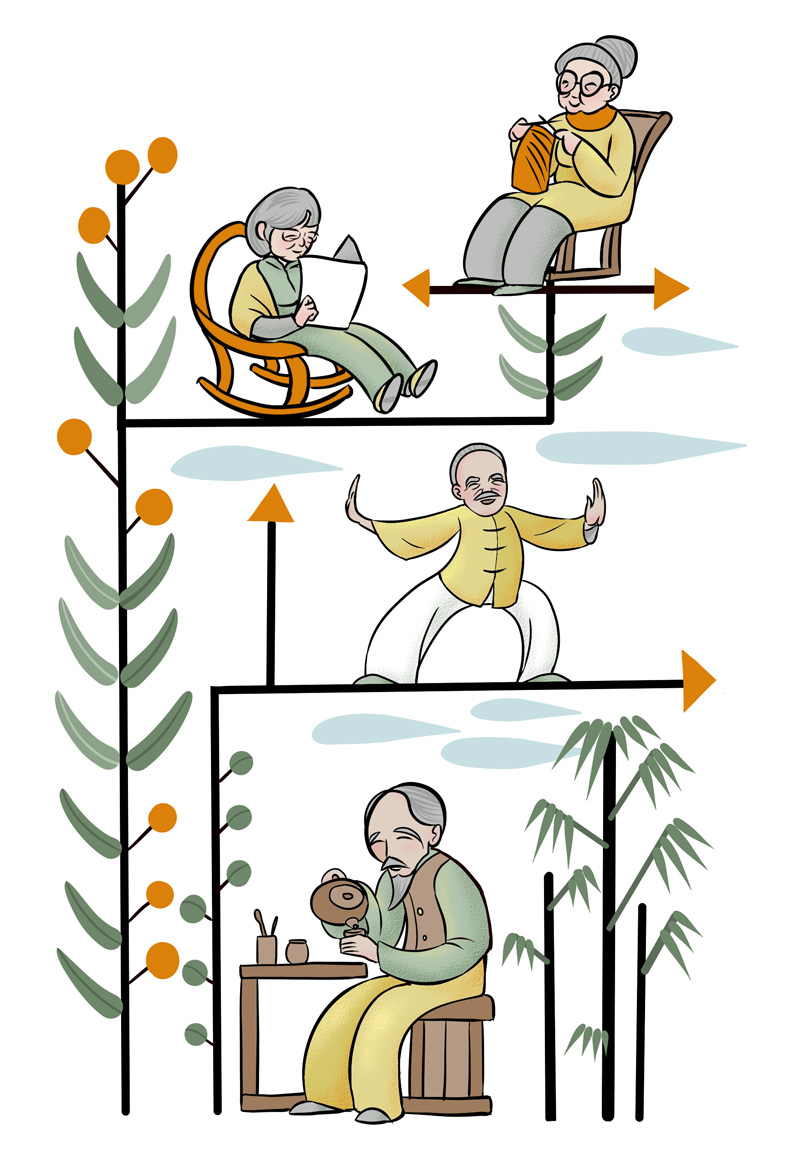How to help the elderly avoid virus infection
By Li Jia | China Daily | Updated: 2021-02-01 07:37

That the new novel coronavirus clusters reported in many parts of China is alarming news goes without saying. But what is perhaps of greater concern is the high percentage of infections among elderly people compared with earlier figures.
Why is the infection rate relatively high among the elderly this time?
First, senior citizens tend to venture outside home to take part in social activities or to get certain jobs done, because elderly people nowadays are usually in good physical condition and therefore can no longer be considered "old people" in the traditional sense. They have more wealth, higher level of education and, despite their age, socially more active.
Second, the elderly today have greater social and spiritual needs. While working-age people spend most of the daytime in the workplace and draw sustenance from their work and interaction with colleagues and seniors, youngsters are busy attending classes in schools or playing with their classmates and friends. Many working-age people and students even get bored with their daily schedule and routine social activities and seek solitude.
In contrast, many elderly people, despite living with their spouses, lead solitary lives, particularly because most of them don't have regular jobs, and therefore need to engage in social activities to meet their spiritual needs and escape solitude.
And third, elderly people need to venture outside more often, say, to visit the hospital to seek medical care because they are more vulnerable to diseases and accidents.
Many senior citizens are not tech savvy and strangers to new generation digital technology, while quite a few are not familiar with even bankcards and ATMs, let alone online shopping and electronic payment.
So they cannot conduct transactions online, or order food or other products using online platforms and need to frequently visit public service facilities such as banks, supermarkets or shopping malls to conduct banking transactions or purchase necessities and other products.
In fact, a survey showed that 70 percent of banks' over-the-counter customers are elderly people.
So how can elderly people's gatherings in public places be reduced?
To begin with, police stations should prohibit events such as money management lectures and health promotion lectures targeting the elderly, because despite being aimed at protecting the property and health of elderly people, such events can expose them to infection risks. And grassroots organizations can play a major role by ensuring such gatherings are not organized.
Also, local authorities and grassroots organizations can take certain measures to help the elderly meet their necessary needs.
For example, by providing the elderly with free mobile internet access, the authorities can help them comprehend mobile technology, and conduct social interaction and commercial transactions online.
Before the COVID-19 pandemic broke out, the gathering of elderly people in public places was an indicator of the improving health conditions of those advanced in age. A number of studies have shown that more social participation and interaction can improve the physical and mental well-being of the elderly.
But given the recent increase in infection clusters, such social activities should be discouraged for the senior citizens' own good.
Perhaps the social and grassroots organizations could take the initiative to organize some social activities for the elderly after taking proper epidemic prevention and control measures, because reducing transmission risks depends on not only isolating people, but also scientific measures.
Besides, internet enterprises and online platforms could devise ways to persuade elderly people to use the internet for social interactions and shop for necessities and, in the process, expand their businesses.
In 2018, China's demography reached a turning point, with the number of people aged above 60 exceeding the number of children in the 0-14 age group for the first time. By 2035, the number of people above 60 is expected to be more than double that of children and teenagers.
Such structural changes in the country's demography will bring about major changes in the demand-supply structure too. For enterprises, how to better meet the needs of the elderly is not only a social responsibility, but also a development opportunity.
So they should seize this opportunity to contribute to a better future as well as improve the lives of senior citizens and help develop China into a modern socialist country that is prosperous, strong, democratic, culturally advanced, harmonious and beautiful.
The author is deputy director of the Aging Society Research Center of Pangoal Institution.
The views don't necessarily reflect those of China Daily.
























